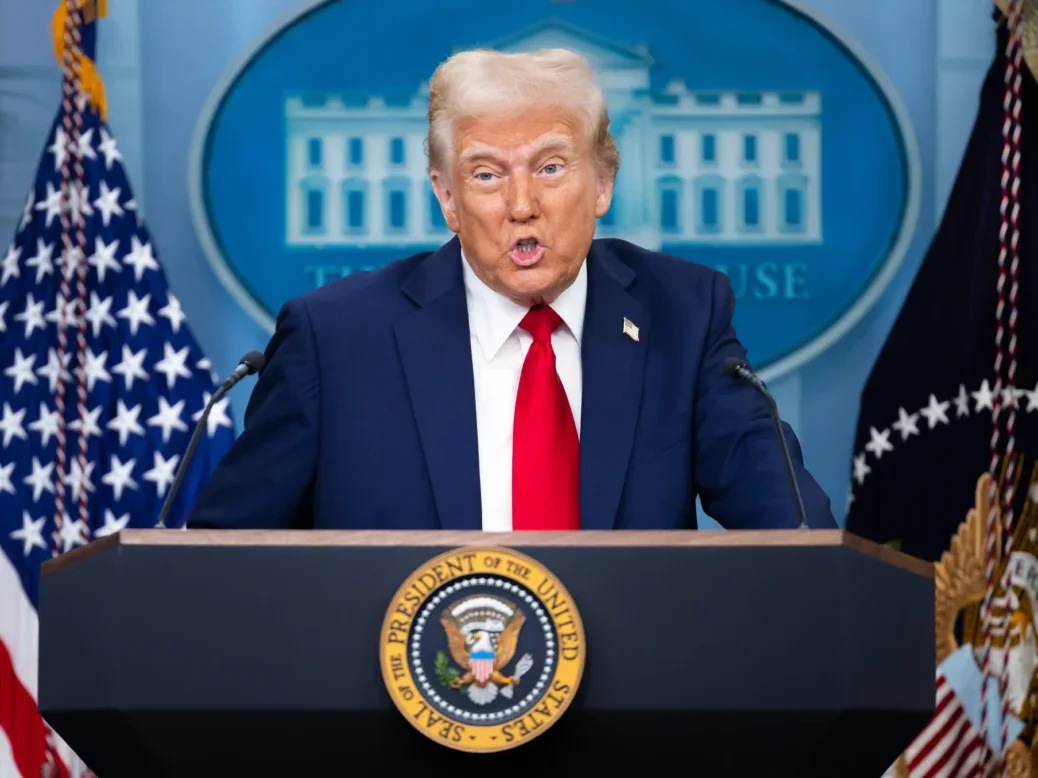
Why isn’t the global news industry saying more about the impact of Trump two on the business of news and the public’s right to know?
This is the question being posed by International News Media Association chief executive Earl Wilkinson ahead of the body’s next World Congress of News Media in New York on 25 May.
Press Gazette spoke to Wilkinson before Trump declared a trade war on the rest of the world, thus adding a possible global recession to the challenges publishers are facing.
Speaking via video call from the US last week, Wilkinson said: “I am really surprised about the lack of alarm in news media.”
He had earlier outlined his concerns in a blog for INMA which warned: “The global ecosystem in which news media companies operate has changed to favour big tech companies, the guardrails for AI have been lowered, and the principles on which journalism are based have come unhinged.”
He told Press Gazette: “We are a best-practice organisation, it is pretty unusual for us to put out our own points of view. My blog post is historically not the space that we occupy.”
Over the last 15 years publishers have come to rely on two US tech giants – Meta and Alphabet – for online discoverability. At the same time those two companies have almost entirely supplanted news publishers in the advertising market.
Wilkinson said these companies (as well as Amazon and X) have now repositioned themselves behind Trump’s “America first shield” when it comes to regulation in a move which may put hundreds of millions of dollars of news industry revenue at risk.
He said: “We think issues of copyright, AI and press freedom are being thrown into a bucket along with ‘do you want our military aid’?
“The biggest impact internationally around the Trump administration has been around the content settlements that Google, Meta and others have agreed to.
“It means that those countries who have almost brought these to the finish line are going to find the finish line has moved.”
He said renewal of existing agreements are also now in question.
Google was forced by the Canadian government into paying £55m to support the Canadian news industry earlier this year.
It has also made separate bargains with publishers in France, Germany and Australia to stave off the threat of statutory regulation.
Wilkinson’s analysis suggests UK publishers should not expect any money to come flowing their way soon from Google and Facebook as a result of the Digital Markets, Competition and Consumers Act. The legislation gives UK regulators the power to fine US tech giants 10% of global turnover if they abuse their dominant positions.
The new reality is that any fresh curbs on US companies could be bound up with Donald Trump’s use of tariffs to protect US companies.
Meta and Alphabet collect more than £20 billion a year in UK revenue, around two-thirds of the total British advertising market, whilst paying corporation tax which runs in the tens of millions.
Google has has begun making the argument against paying publishers for content by arguing that it makes no advertising revenue from news content.
UK publishers have voiced alarm, in a rare show of solidarity, that generative AI companies have stolen their content in order to train answer engines which compete directly with them. And they are seeking a backtrack from the UK Government position, which is a plan to water down copyright protections to make it easier for AI companies to steal original work.
Asked for his views on the recent Google study, Wilkinson said: “I have yet to see any unbiased study that looks at the impact of news on Google. What I see from Google and some news publishers are competing legal pitches for cases that are trying to be won.”
Overall, he said, publishers need to be prepared for a radically different world order where the US Government is working hand in hand with the tech giants rather than seeking to curb their over-arching power.
“Trump one came really close to regulating Big Tech, Biden also came close. What Trump two is doing is radically different. It’s: ‘Let’s bring them in as part of what politically is a very transactional relationship. Let’s see what we can do together.'”
His biggest piece of advice for publishers?
“We’ve got to create a direct relationship with our readers.”
This could include a move back to more investment in publishers marketing themselves, rather than relying on search and social to reach new readers.
In his blog he urged publishers to double down on quality and core values in order to stand out in the new digital world.
“The search and social ecosystems are becoming even dirtier as guardrails, fact-checking and the imperfections of AI create a less reliable and trustworthy soup of results. Will news media content stand out amid the tsunami of AI and creators’ content? News media’s competitive strategy depends on successful differentiation.”
Email pged@pressgazette.co.uk to point out mistakes, provide story tips or send in a letter for publication on our "Letters Page" blog
